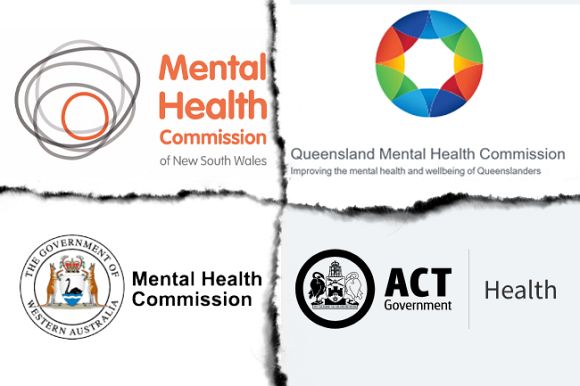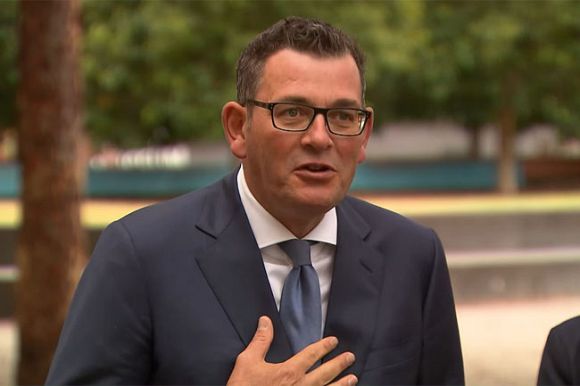With Victoria's mental health services failing, it's time for our politicians to investigate the heart of the problem and urgently improve the system, writes Simon Katterl.
MENTAL HEALTH systems are not built on good foundations. They are not built on the concerns, wishes and expertise of the people who use these systems. Therefore, they are unlikely to get the right outcomes.
That requires remedying and there are no shortcuts. Others have written on the need to rewrite mental health laws to be based on equality and fairness, rather than discrimination and paternalism. I’ve written about how this should apply not just to laws, but to the design of the whole system, from the biggest institutions to the smallest daily moments.
A piece less well understood is the role of regulation. I have worked at the intersections of lived experience, law and its enforcement. In Victoria, these intersections are not playing out well for human rights.
The Commission's role: A bulwark for human rights
All people have justifiable complaints about healthcare treatment. But mental health is different. Unlike physiotherapy, neonatal care or cancer treatment, mental health care sits within a legal, historical and cultural framework that legitimises force based on inadequate voluntary care systems, fear and discrimination. These include detention, compulsory mental health treatment (including electroconvulsive treatment), seclusion and restraint. For that reason, specialist oversight and complaints mechanisms are often necessary.
In Victoria, the introduction of the Mental Health Act 2014 (Vic) birthed the Mental Health Complaints Commission (MHCC). The MHCC was meant to respond to concerns that the non-specialist Health Services Commission agency and the Chief Psychiatrist weren’t adequately responding to harms and rights breaches against mental health consumers and carers.
The MHCC was new, unlike any other mental health commission in the country. Unlike other commissions, it combined a systemic focus – with the ability to provide advice to the Secretary and Minister and to publicly report on issues in the system – as well as an individual complaints resolution function with strong compliance powers. With the ability to investigate, identify and redress individual rights violations for systemic change, it was, by most measures, the most powerful commission in the country.
Justifiably, the reforms were considered to make Victoria a leader in mental health.
The Commission's performance: Teeth, but no bite
Sadly, it didn’t turn out this way. The story from our Royal Commission into Victoria’s Mental Health System is well known: there was a catastrophic failure to meet expectations. Among the many issues were pervasive breaches of human rights. Research I was involved in highlighted that human rights breaches were so pervasive as to render rights illusory.
Funding, the failure to properly embed human rights in system design and culture, and a failure to support (or get out of the way of) lived experience leadership are all well-documented issues. Another was the failure of the MHCC.
During its operation, the Commission came under fire for underperformance on many fronts. During evidence to the Royal Commission, multiple experts spoke about the failure of the MHCC to be a credible enforcement and oversight body. Others spoke about its failure to publicly report data on service performance. (It should be noted that the MHCC said that it wouldn’t do this until the data was triangulated, but never made visible progress on this. Now that the data has been obtained under Freedom of Information, the MHCC seems to be publishing it as a matter of routine.)
I, among others, called on the MHCC to release the recommendations that it made for public mental health services to improve. Others questioned whether the treatment of oral complaints was achieving a safeguard function after concerns from consumers that it wasn’t.
Evidence obtained during the Royal Commission by the MHCC and obtained later via Freedom of Information provided critical feedback to the Commission.
Some consumers and carers’ feedback included:
Nothing changed.
No solutions no outcome as to the complaint.
I didn't feel that my mental health wellbeing improved by making a complaint to the MHCC. Still in the same position mental health wise…
I tried to inform the right people as to what is really happening when l tried to get help, but no one cares.
MHCC accepted [the] complaint. Wasted 2-3 months of time and only then [MHCC had denied] jurisdiction in the matter…If [the] MHCC had no jurisdiction they never should have accepted the complaint in first place, but they did have jurisdiction…
Instead of taking a complaint to the service provider, they could look at prosecuting service providers.
What is point of [an] investigative body if it has no authority?
MHCC could improve by moving towards being in a position to go forward for patients or carers in regards to prosecution of mental health departments / service providers.
Have enough power to enforce a position where the complainant could prosecute.
I had legitimate grievances but I found that MHCC had very limited powers and were unable to resolve my issues. They acted as merely a sounding board.
It is noteworthy that the advice highlighted in the same report was for the MHCC to better “manage expectations”, with one person saying:
“Tell people immediately of their limited powers so patients do not have false hope for a change that MHCC cannot bring into effect.”
The much more disappointing reality is that the MHCC did, in fact, have the powers to justifiably engender hope.
This reflects broadly negative feedback that I heard during a report published at the same time for the Royal Commission.
Here one consumer stated:
I have sought help and refuge from the mental health services. I made a complaint to the Mental Health Complaints Commissioner, after being entertained by them that I would be taken seriously. But the real issues were not addressed, because neither the MHCC or the service were willing to acknowledge the harm that they have caused me. The service was meant to sit down with me and engage in the kind of collaborative conversation about my experiences that I needed. This never happened on anything except what they chose. It was to fulfill a formality.
While the Royal Commission's final report underestimated the need to diagnose and challenge the regulators’ failures, it did criticise under-enforcement by key agencies (Vol 4, 263):
It is difficult to see what actions are being taken to hold services to account for quality and safety or human rights failings. Transparency about these activities allows consumers and their advocates to engage in a more meaningful way with the various oversight and improvement arrangements, and hold those charged with these functions to – in turn – be held to account. In contrast, the lack of information about how the Department of Health, the Chief Psychiatrist and other bodies are responding to quality and safety concerns can leave consumers feeling disempowered and distrustful.
Consumers and carers did, indeed, feel untrustworthy. After year-on-year increases in complaints without adequate enforcement, evidence received in 2022 found that just 24 per cent and 26 per cent of people believed that complaints were helpful to themselves or others. People have since shared their negative experiences with the media in an effort to drive change.
Ultimately, I remember one person telling me on the phone the consequences of this that they wanted the Royal Commission and public to hear.
He told me:
“The system impresses itself upon you and imprisons you. You can’t think from the medication. People stop calling your phone. Relationships are gone. Your life changes. Your person is dead. But you are meant to go on pretending that everything is normal. And you never have any choice about the matter. It’s an invisible and symbolic prison.”
Rebrand, but not re-think
On 1 September 2023, the MHCC was rebranded as the Mental Health and Wellbeing Commission (MHWC). The statement by the incumbent commissioners showed no indication that they accepted any issues with their current approach.
Less than three weeks later, an open letter with 300 signatories went to the Minister for Mental Health, calling for a review. It also called on the MHWC todrop a (presumably expensive) case to appeal a decision by the Office of the Victorian Information Commissioner (OVIC) to order the release of recommendations made to public mental health services.
At this time, the MHWC clings to claims of concern for privacy and secrecy provisions in their legislation, despite OVIC dispelling these claims. In a rare show of unity, the Greens and the Opposition criticised the efforts to the media.
Greens MP Tim Read stated:
“Trying to suppress this stuff doesn’t fill anyone with confidence that effort is being made to fix the problem. If they say it can’t be done, then they’re not trying hard enough.”
Nationals MP Emma Kealy stated that the Government is:
“…failing these workers by ignoring the Royal Commission’s priority recommendations around workforce and increased transparency around Victoria’s mental health crisis.”
And with the latest front-page reports in The Age and coverage by ABC news, the issue won’t go away. Calls for an independent investigation are growing (including from me).
You may well throw your hands up and wonder, first, what could be done better? and second, what can I do? There are answers to both: practical and political.
Practical pathways to improvement
Without boring you, after I worked at – and advised – the MHCC for four years, I felt that I wasn’t able to influence change by the time I stepped away. Since then I have stepped outside government and done my own consultancy. In that time I’ve written several articles on the MHCC and to a lesser extent, the Chief Psychiatrist.
In Regulating Rights, which was fortunate to be a chapter in a launched book in recognition of Emeritus Professor Bernadette McSherry’s work, Emeritus Professor Sharon Friel and I provide what is perhaps the most complete account of how the MHWC could improve.
In what we termed a ‘Human Rights and Mental Health Regulatory Framework’, we outlined a series of principles that could underpin the MHWC’s improvement. These were: develop clear objectives; be responsive; regulate risk; set effective standards; judicious enforcement; tripartism; and balance power. To provide an explanation, I explore three.
In urging the MHWC to be more responsive, we argued that it needed to better demonstrate how it responded to the unique circumstances, motivations and qualities of each mental health service it engaged with. Treating all services the same would over-regulate those that excelled, fail to support those that wanted to improve and under-regulate those that dismissed the need for change.
Creating profiles that indicate the overall quality, performance and characteristics of each regulated service would assist the MHWC to consider how and when to use its powers given such a high volume of complaints.
When we discuss judicious enforcement, we’re not suggesting a “command-and-control” style of regulating. Rather we are saying that the MHWC aims to work collaboratively, while signalling (but not threatening) the significant powers it has and uses them publicly where necessary. One of the issues with the current MHWC is that it claims that it doesn’t need to use its powers because services voluntarily comply, but it won’t release those recommendations.
When they are released, I believe it will show that:
- many recommendations are repeatedly made in similar form to services;
- that there’s no evidence that those recommendations were implemented fully; and
- that the recommendations are implemented but were so minimalist as to not address the issue.
What this means is that powers might not need to be used, because the MHWC doesn’t recommend anything they know services won’t already accept. Ambitious recommendation development – including done in partnership with the community as I have argued – will require a braver regulator. That will create a braver and more learning-oriented system.
While I could bore you into oblivion talking about tripartism, I will instead suggest that we focus on balancing power. Mental health treatment and regulation occur within the context of profound power imbalances. Epistemic injustice, information asymmetries, the threat of state violence and more all ensconce the interactions that mental health consumers have when making complaints about their treatment. (These may also apply to families and carers to a lesser degree, though they are not taken under mental health laws of the state.)
That power relation is engaged first with the mental health provider and next with the MHWC as regulator. Developing and reporting on concrete measures of power between these parties and the steps the MHWC is taking to address them is another practical measure that we advocated for.
Political pathways to improvement
It is hard to oversell how many opportunities successive ministers for mental health, department officials and commissioners have had to address this problem. When we consider 16,000 complaints, as well as the much larger number of people who concluded that complaining was not worth it, we need to remind ourselves that these are individual lives and stories. There is a moral responsibility on all of us to do what we can when presented with that opportunity.
There are, in reality, three mechanisms to address this. All three mechanisms are about the MHWC learning from what has worked, what hasn’t worked and what can be improved. The first is that the MHWC itself conducts a review of the previous MHCC. This opportunity has not been taken. The second is that the Minister for Mental Health – now the Honourable Ingrid Stitt MP – orders the review of the MHWC.
In addition to successive calls to previous ministers to intervene, this too remains untaken.
The third is for independent agencies such as the Victorian Auditor-Generals Office or the Victorian Ombudsman to audit or investigate the agency. After attempting many of the above steps, I am one of dozens of people to write to the Victorian Ombudsman to provide evidence and support for an investigation into the MHWC.
Human Rights Week was earlier this month. If you didn’t do all you could, you might want to take ten minutes to email the Victorian Ombudsman in support of an investigation: complaints@ombudsman.vic.gov.au.
Simon Katterl (he/him) is a mental health and human rights advocate with lived experience of mental health issues. He has advised government ministers and legal and mental health services. You can follow Simon on Twitter @simonkatterl.
Related Articles
- Overcoming mental health challenges with self-compassion
- Incarceration even more cruel to the neurodivergent
- Mental health commissions are a mess and we're suffering
- Mental health reforms dying at the altar of politics
- Media silent on funding to improve mental health supports through lived experience
 This work is licensed under a Creative Commons Attribution-NonCommercial-NoDerivs 3.0 Australia License
This work is licensed under a Creative Commons Attribution-NonCommercial-NoDerivs 3.0 Australia License
Support independent journalism Subscribe to IA.


















